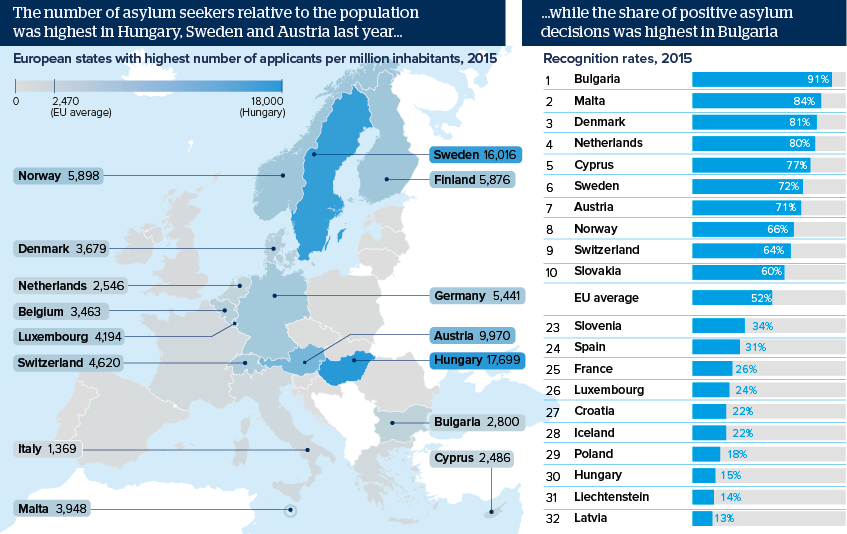Uneven migrant distribution in Europe may push reform
As the EU faces one of its largest challenges yet, countries' migrant burden-sharing varies

Source: Eurostat
Outlook
The uneven distribution of migrants will increase pressure on the EU to implement planned reform of the asylum system, which includes a mandatory relocation mechanism, despite opposition from a number of countries including Hungary, Poland and Slovakia. A sustained perception of unfair burden-sharing could strengthen far-right anti-immigrant and Eurosceptic parties further.
The EU-Turkey migrant deal, which has reduced the number of arrivals significantly, has also increased Europe's dependency on Turkey. Political and public opposition is likely to grow as visa-free travel for Turks is set to come into effect from July. Countries with a high number of migrants will face the challenge of integrating them into society and labour markets, which may lead to social tension given the difficult economic climate in many countries.
Impacts
- The relocation mechanism will not apply to three EU countries with opt-out clauses: Denmark, Ireland and the United Kingdom.
- Differences in approval rates are partly due to asylum seekers' citizenships: 97.2% of Syrians, but only 1.6% of Serbians, were accepted.
- The EU's attempts to manage the crisis will be frustrated by asylum seekers' own preferences, as most registered in Hungary have moved on.
- The migrant crisis and the way the EU is dealing with it may fuel immigration fears in the United Kingdom ahead of the 'Brexit' referendum.
See also
- Migrants help keep Central European populists in power - Sep 26, 2016
- Idomeni migrants are moved around Greece not resettled - May 25, 2016
- Reforms may make EU asylum system more sustainable - May 6, 2016
- More graphic analysis